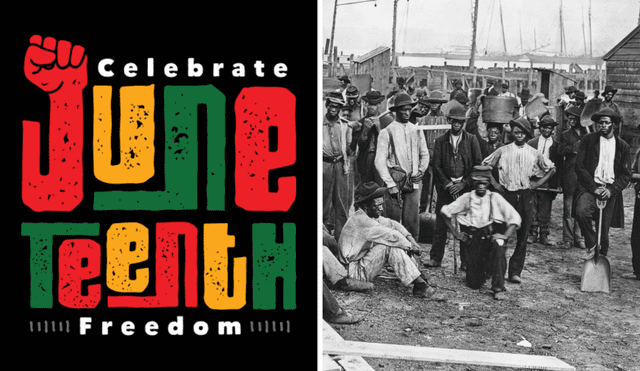Juneteenth 2025: What it celebrates and how Americans are marking the holiday
Juneteenth marks the end of slavery in Texas. Celebrations continue despite DEI bans under Trump’s new term.

Juneteenth signifies June 19, 1865, the day which African American slaves learned they could no longer be enslaved, which occurred two years after the Emancipation Proclamation was signed.
Since 2021, Juneteenth has been a federal holiday to honor Black history and culture. The Trump administration has been slower to acknowledge events with racial traditions, but has also wiped out any activities related to DEI. Thus, this year has ignited controversy.
Celebrations across the United States
Across the country, festivals, parades, concerts, and educational events are designed to celebrate the holiday. In dozens of cities, community groups and local organizers have booked street fairs, art displays and musical shows symbolizing the creativity and perseverance of the Black community. Community fairs of this sort frequently have informational booths about healthcare, finances and local services.
Many National Park Service sites will offer free admissions and plenty of cities have scheduled free week-long programs. Attendees may witness fashion shows and hearing panelists who will educate participants on the significance of Juneteenth, its monumental legacy of resistance and progress.
Traditions, symbols, and evolving commercialization
Food is an important part of Juneteenth traditions, especially those that are red to reflect the blood and resilience of enslaved ancestors. Barbecue meats, watermelon, red velvet cake and sweet drinks (especially fruit punches) are the food of choice during Juneteenth gatherings. The meals served at the Juneteenth festivities are very important to the cultural aspects of expression and remembrance.
The symbolism of the impending emancipation continues with reference to the Pan-African flag and the Juneteenth flag created in 1997. The Juneteenth flag has one star over Texas with hearkening outward to the rest of the world to spread the sparks of freedom. More recently, the holiday has been part of retail consumption and commercialism (although in 2025 some flagship retail brands appear to be more reticent). Advocates are always eager to support commerce to Black owned businesses, especially when purchasing clothing or other items that are related to Juneteenth.













